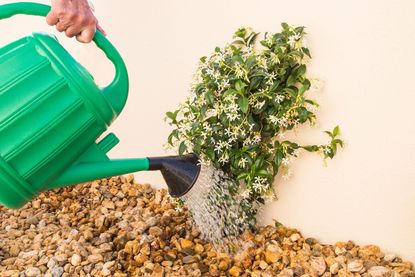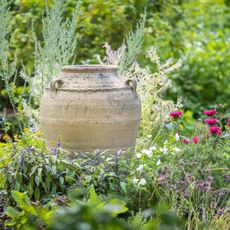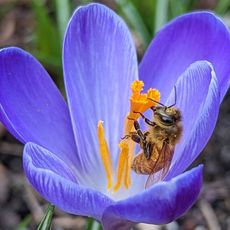Easiest Ways To Propagate Jasmine: Simple How-To Guide
With a wide variety of types to choose from, who wouldn’t want to propagate jasmine plants? Whether they’re the heavenly fragrant variety or just beautiful climbers, learn the best ways to grow more of them.


Best Ways To Propagate Jasmine: Complete How-To Guide
There are several ways to increase the number of jasmine plants in your yard. Cuttings, layering, and seeds are the most successful ways to propagate jasmine. We'll review each method and let you decide,
How to Propagate Jasmine from Cuttings
To propagate your jasmine plant with cuttings, start by clipping small sections of stem from the plant. Each cut should be made at a 45-degree angle, just below a set of leaf nodes. Next, excess foliage can be removed from the cutting, leaving only 1-2 sets of leaves. Though it’s optional, new cuttings may be dipped into rooting hormone to speed the process. After being placed into a quality potting mix, the cuttings will require consistent warmth, moisture, and humidity.
Semi-Hardwood Cuttings
Semi-hardwood cuttings often produce the best results propagating your favorite varieties of jasmine. These stem segments are also taken from new growth, but only when it has hardened or started to mature.
Hardwood Cuttings
Hardwood cuttings are taken from mature plant growth. This type of cutting should be taken in the fall and allowed to root throughout the plant’s dormancy period. Growers have found success propagating several species of jasmine in this way, though results will vary from one species to the next.
Softwood Cuttings
Gardening tips, videos, info and more delivered right to your inbox!
Sign up for the Gardening Know How newsletter today and receive a free download of our most popular eBook "How to Grow Delicious Tomatoes."
Softwood cutting refers to stem segments that have been taken from new, green growth. Though some species of jasmine may struggle to root from softwood cuttings, several types can be propagated dependably in this manner. It’s worth a try.
How to Propagate Jasmine by Layering
Layering refers to the process of burying a plant’s leaf node, or growing point, while it is still attached to the parent. After taking root, new plants can be clipped free and grown on. Growers have also found success propagating jasmine through air layering the plant, which works on the same basic principle.
To successfully layer jasmine plants, mature stem growth, specifically that which is approximately one year old, is ideal. Stretch or lay these cuttings onto the soil, making certain to cover the plant’s growth node. Though only shallow depths are necessary, you will need to ensure that the soil remains consistently moist throughout the rooting period. Check the plant’s progress frequently, as layered stems can root in as little as a few weeks.
How to Propagate Jasmine by Seed
Growing jasmine from seed is a good option for budget-savvy gardeners. Though some hybrids may not grow true-to-type from seed, most species will dependably produce plants that are similar to their parent. For the best chances of success, look for seeds that are fresh and have been allowed to mature fully before being harvested.
Many species of jasmine can be grown dependably from seed. This process requires patience, as most types require a long period of germination. Germination rates can be improved by soaking the seeds at least 24 hours and by scratching the seed coat before planting. It’s a good idea to start jasmine seeds indoors in the winter.
Best Time to Propagate Jasmine
The best time for jasmine plant propagation varies depending upon the species and technique you choose. Starting seeds indoors is best done in late winter. Softwood cuttings, or plants that are to be layered, are best done in spring or early summer. This allows ample time for the new roots to develop. Both hardwood and semi-hardwood cuttings can be done from late summer into early fall. Cuttings from more mature wood are often taken much later in the season.
Frequently Asked Questions
Will Jasmine Cuttings Root in Water?
An ever-popular technique, many growers question whether or not it is possible to propagate jasmine cuttings in water. Gardeners report success using this technique across several species. To do so, one can simply take cuttings of their favorite plants and carefully remove any foliage that should fall below the waterline. Under ideal conditions, roots should begin to sprout in as little as one week.
How Long Does It Take for Jasmine Cuttings to Root?
The length of time needed for jasmine cuttings to root will vary greatly. Some types are able to sprout quickly, showing the first signs of growth in as little as one week. Hardwood cuttings or cuttings of cultivars that are more difficult to root will require much more time, often needing several months to begin to grow.

Tonya Barnett has been gardening for 13 years. Flowers are her passion. She has trasformed her backyard into a cut flower garden, which she regularly chronicles on her YouTube channel http://www.youtube.com/@tonyawiththeflowers.
-
 Front Yard Herb Garden Ideas To Spice Up Your Landscape
Front Yard Herb Garden Ideas To Spice Up Your LandscapeUse your imagination and plant a lovely front yard herb garden. You’ll love the convenience, the fragrance and the beauty, and pollinators will appreciate it.
By Amy Grant
-
 When To Clean Up Garden Beds In Spring To Protect Pollinators
When To Clean Up Garden Beds In Spring To Protect PollinatorsEvery spring, I'm reminded that many species of insects have used my garden as a winter hotel and may not be ready for a wake-up call just yet.
By Teo Spengler